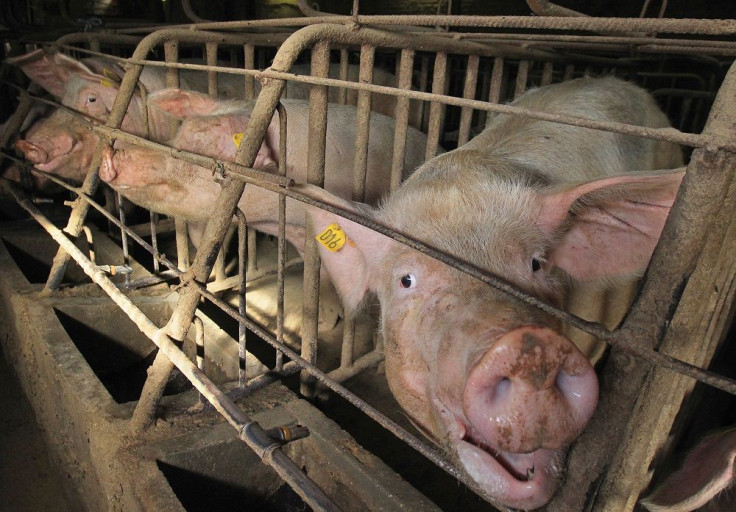British doctors to test modified pig organs as treatment for oesophageal atresia

Doctors in Britain are modifying pig organs which they would use to treat newborn babies born with defects. Infants who were born without a section of their oesophagus, the tube that links the mouth to the stomach, are to obtain transplants from pigs.
These transplants will be modified through the child’s stem cells. The treatment will be utilised by a team of doctors at Great Ormond Street Hospital in London by 2018. It would be used to at least 10 children born with stern cases of oesophageal atresia. The research team is reportedly planning to extend the treatment for adults who are suffering with oesophageal cancer, which is a more common condition and is usually more fatal.
Different sizes of oesophagi have been taken from pigs at a British farm. The first kids for the trial are expected to be named in the coming months.
Per The Australian, “animal scaffolds” will be modified to take out all their cells, then will be re-engineered using the child’s stem cells so they can be accepted by the patient’s body and be suitable for transplant. The stem cells will be taken after birth from the babies’ muscle and residual oesophagus.
The process of tissue engineering would require eight weeks. Doctors reportedly intend to implant the modified oesophagi at least two to three months after the birth of the child.
The majority, 90 percent, of oesophageal atresia cases can be treated through simple procedure to close the gap. For severe cases, however, the mere option is for doctors to surgically reposition the child’s stomach into the chest cavity. This option is risky as it can result to complications through the life of the patient. Paolo De Coppi, a consultant pediatric surgeon at Great Ormond Street, said the option can also lead to a greater risk of oesophageal cancer.
Coppi, who was behind the new treatment, said pigs have been utilised for heart valve replacement for several years, but no one obtained an organ developed from an “animal scaffold’ like the way he and his team plan to do, which is set to become the first in the world. In 2010, Coppi pioneered a different transplant in which a 13-year-old boy was given a new trachea from a deceased human donor using the patient’s stem cells.
He is also developing a treatment for kids born with shortened bowels which will also utilise pig organs and stem cells. Coppi hopes to introduce the treatment in 2020.
City 42/YouTube





















